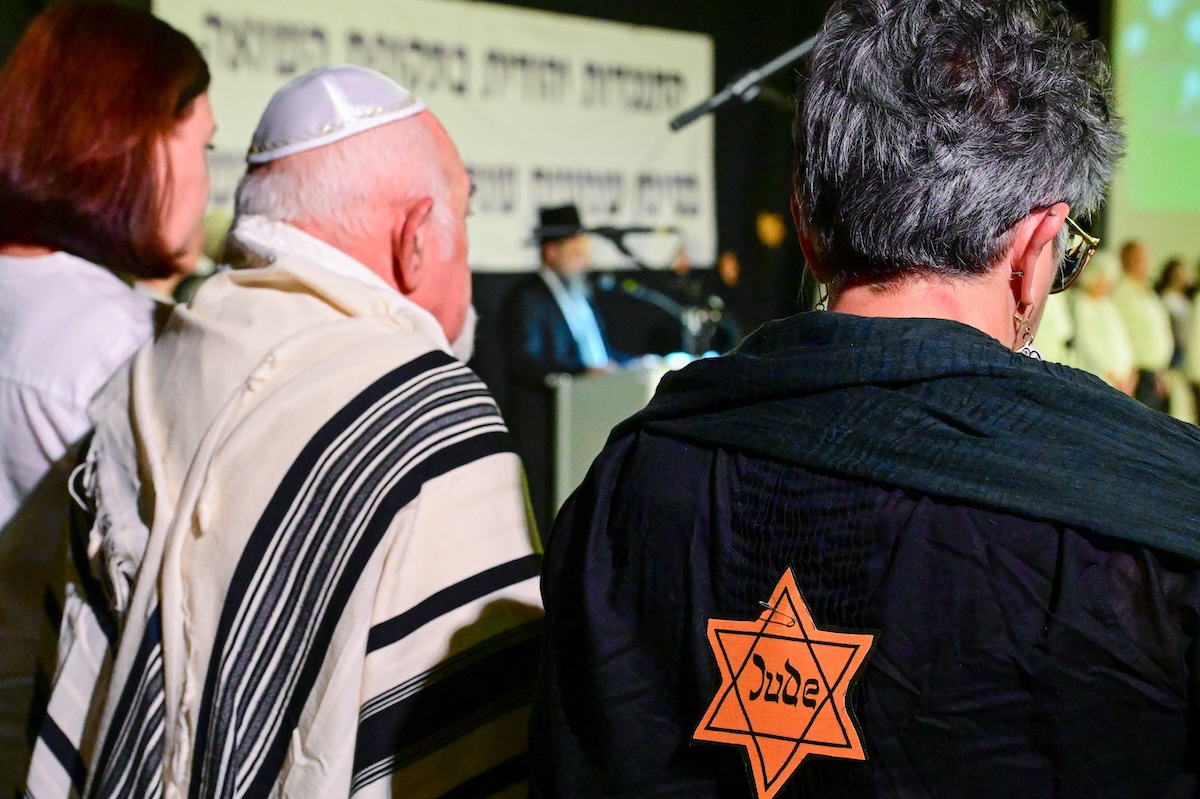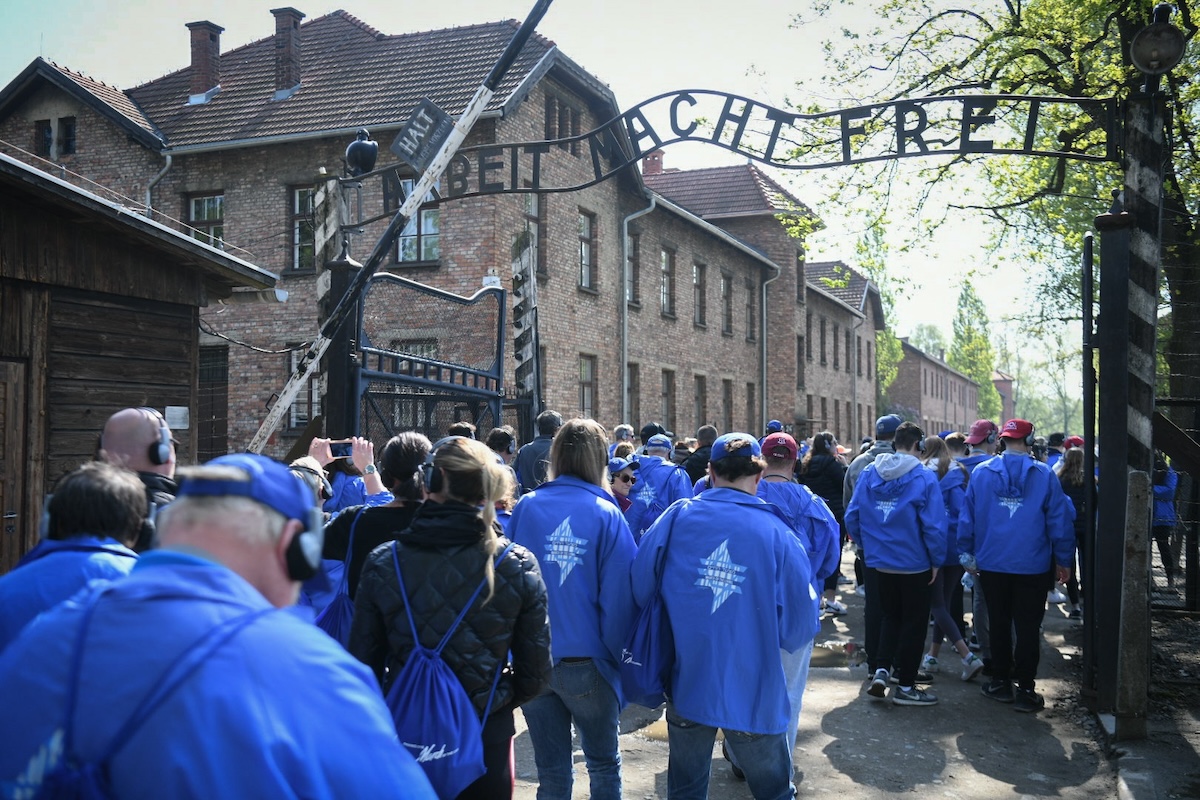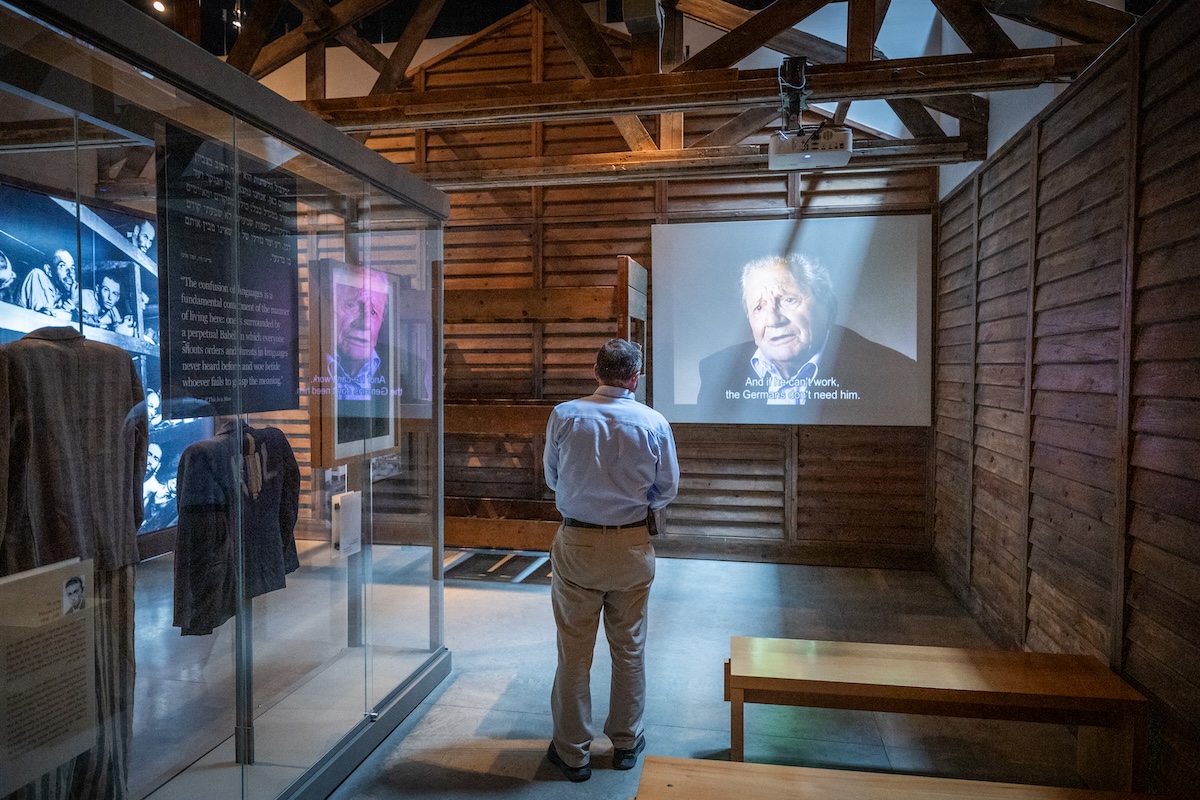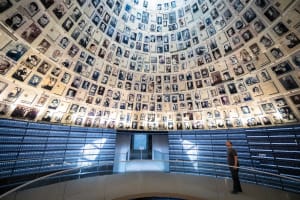Holocaust Remembrance Day in Israel: Honoring victims and confronting dangers of hatred
Dr. Elana Heideman of the Israel Forever Foundation shares insights about observing Holocaust Day amid a resurgence of worldwide antisemitism

Each year, as Holocaust Remembrance Day approaches, communities throughout Israel and worldwide pause to reflect on one of the darkest periods in human history.
Holocaust Remembrance Day, or Yom HaShoah in Hebrew, is observed beginning on Sunday evening at sundown until the following Monday evening. It commemorates the six million Jews and millions of others who were murdered by the Nazi regime and its collaborators during World War II. The day is observed to honor the memory of the victims, reflect on the atrocities committed and educate future generations about the dangers of unchecked hatred and prejudice.
While International Holocaust Remembrance Day takes place each year on Jan. 7 – the day the Auschwitz concentration camp was liberated by the Soviet Army in 1945 – Israel commemorates Yom HaShoah according to the Hebrew calendar – the 27th of Nissan – which falls one week before Independence Day.
This year, the Holocaust commemoration in Israel carries a heavier message, underscored by the recent surge in antisemitism and anti-Israel protests following the Oct. 7 terror attack by Hamas on Israel's southern border with Gaza.
Dr. Elana Heideman, executive director of the Israel Forever Foundation (IFF), offers a poignant perspective about the upcoming observance of Holocaust Day in Israel during her interview with Christian journalist Paul Calvert of Bethlehem Voice. Her reflections highlight a deep connection between the historical events of the Holocaust and contemporary challenges faced by Jewish communities worldwide as a result of the troubling resurgence of antisemitism.
"Yom HaShoah, Holocaust Remembrance Day," Heideman said, “is honored by a day of solemn commemoration and storytelling.”
She explained that the term shoah means catastrophe in Hebrew and that Holocaust is a word with origins that means “wholly consumed by fire.”
‘The term was actually coined as a reference to the destruction and the extermination of the Jewish people by my mentor and professor, Elie Wiesel,” Heideman said, referring to the Holocaust survivor and Nobel Peace Prize recipient.
“He used this word to refer to beyond the massive catastrophe and how much was consumed. So very often, commemorations for the nation of Israel, again being those in Israel and Jews around the world, include the lighting of flames of memory,” she noted, reflecting on traditional practices.

On Holocaust Remembrance Day, Israel comes to a standstill at 10 a.m. to honor the victims of the for a moment of reflection. The day is filled with community programs and local storytelling.
Heideman emphasized the importance of remembering the Holocaust not just as a historical event, but as a continuing lesson in the dangers of unchecked hate.
The commemoration events that take place during Holocaust Remembrance Day serve an educational purpose, which is crucial as the number of living Holocaust survivors dwindles each year, leaving behind second and third-generation descendants to carry the legacy.
“They give people an opportunity to hear the voices of the witnesses," Heideman told Calvert.
“People take pride in being able to pass those stories on, and we now have more second and third-generation descendants of Holocaust survivors who are taking a leadership role in the continuation of Holocaust memory, alongside the museums and community organizations that really work very hard to make sure that this memory is not lost with the passing of time...”
Heideman spoke about two community programs in Israel to commemorate Holocaust Day.
One of them, Zikaron BaSalon (Memories in the Living Room), is an initiative to keep the memory of the Holocaust alive in an intimate, meaningful, and accessible way and includes a community of hosts, speakers and participants.
On Yom HaShoah, Heideman will participate in the International "March of the Living," an annual event that has been held for 36 years. Since its inception in 1988, this educational initiative has brought together over 300,000 participants from 50 countries to march the 3-kilometer (1.86-mile) route from Auschwitz to Birkenau in Poland, honoring Holocaust victims.

Heideman also explained that Holocaust museums throughout the world, including Yad Vashem in Jerusalem, will hold ceremonies to “allow survivors to tell their testimony as well, which is very important for protecting the history and the personal experience so that the Holocaust or anything like it can never happen again.”
This year, the remembrance of the Holocaust takes on an additional layer of significance because of the tragic, large-scale attack against Israel by Hamas terrorists on Oct. 7.
Heideman described Hamas' invasion and slaughter of 1,200 Israelis as a genocidal massacre that casts a long shadow over the day's observances. The parallels drawn between past atrocities and current threats highlight an uncomfortable reality for many in the Jewish community.
During the interview, Heideman was particularly vocal about the surge in antisemitism, which she sees as a disturbing echo of the past. "We see that this type of hate that brought about the Holocaust is rising all around us again, and the murder of Jews is once again becoming socially acceptable," she warned.
Heideman highlighted the disturbing resurgence of antisemitic rhetoric, which echoes the dangerous accusations made by the Nazi regime during World War II.
"When the Nazis were accusing the Jews of poisoning the Christian and Aryan blood and communities with their presence, they enabled logical hatred against Jews."
She used this historical comparison to draw attention to accusations about Jews today being the fundamental problem, thereby justifying their elimination.
Elaine expressed her deep concern over the inadequate response to increased threats, such as the current protests on university campuses, but noted a significant gap in public activism and awareness.
"I'm only shocked to see how little collective response against these movements of terror are taking place. We are not seeing enough of the activism publicly to counter their lies," she said, underscoring the need for vigilance and proactive measures in educational and professional settings to combat the spread of extremist ideologies.
The vow "never again" is not just a reminder of the past but a call to action against current threats, she said.
Heideman made a clear connection between remembering the Holocaust and addressing antisemitism today. She explained that the lessons of the past are not just historical footnotes.
Remembering the victims of the Holocaust, Heideman said, is not only about honoring those who were lost but is also a call to action against the forces of hate that persist in today’s world.
"The world is facing a spiritual conflict, and antisemitism is...a piece of evidence of it."
Heideman suggested that antisemitism and terrorism are not just social or political issues but are a form of spiritual warfare. She reflected on the lack of awareness about evil influences in society and how social justice narratives can be used to manipulate.
“I don't believe that people today really accept that the devil is swarming all around us in the embodiment of the terrorist movements and in the hate. But it's all being disguised as social justice. So, it's spiritual. It is intellectual, it is physiological. I think it all has an impact,” she said.

Heideman’s hope for this year's Holocaust Remembrance Day reflected on concerns about the Jewish community and noted that many survivors in Israel are suffering from hunger and that children and descendants of Holocaust survivors are feeling lost or being misled by false rhetoric during this time.
Her heartfelt hope is that on this first Holocaust Remembrance Day since Oct. 7, the Jewish community can transform its collective pain into a “unified blessing for our people, for the future..”
"We are witnessing history repeat itself with all of its original elements,” she said.
Heideman wants to see the prayers lifted on behalf of the Holocaust victims be translated into prayers of protection over the community of Jews.
“Protection for our Jews everywhere around the world who are under threat, protection for our hostages who remain in captivity, and no one really shouting out other than the Jewish people and our friends of Israel. We do not have enough people shouting out for their freedom and for their innocent lives to be remembered,” she said of the Israeli hostages being held captive by terrorists in Gaza since the Hamas attack.
Heideman emphasized the importance of using the lessons of the Holocaust as a proactive tool for change, advocating for a collective approach to prevent future atrocities.
"We must translate lessons of the Holocaust and we must give each other hope. We must give each other strength,” she warned.
Her prayer is a call to unity and resistance against the resurgence of antisemitism and violence, urging everyone to "do so with as much unity and dignity as we can."
“It will not look the same. It will not be lists and gas chambers and cattle cars. But it will be isolation of Jews, followed by massacre, and massacre of the spirit and the massacre of the body. And it will take all of the good people of humanity everywhere, the Righteous Among the Nations. It will take all of our strength to resist it. So, my prayer is that we do so with as much unity and dignity as we can,” Heideman said.
The Israel Forever Foundation is dedicated to fostering a deeper connection to Israel across the Jewish diaspora and promoting a sense of connection to the Jewish homeland. The organization’s initiatives focus on educational programs, advocacy and activities that emphasize the historical, cultural, and emotional significance of Israel for Jews worldwide.
Click below to listen to the full interview.
Click on the following links for Dr. Elana Heideman’s fascinating interviews about Passover and Purim, recorded with Paul Calvert over the last two months.

The All Israel News Staff is a team of journalists in Israel.
You might also like to read this:

















